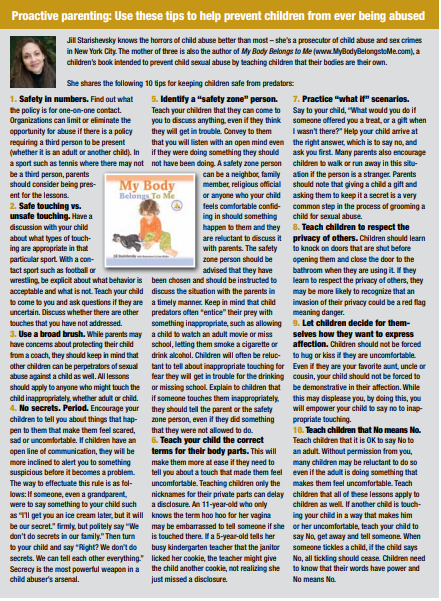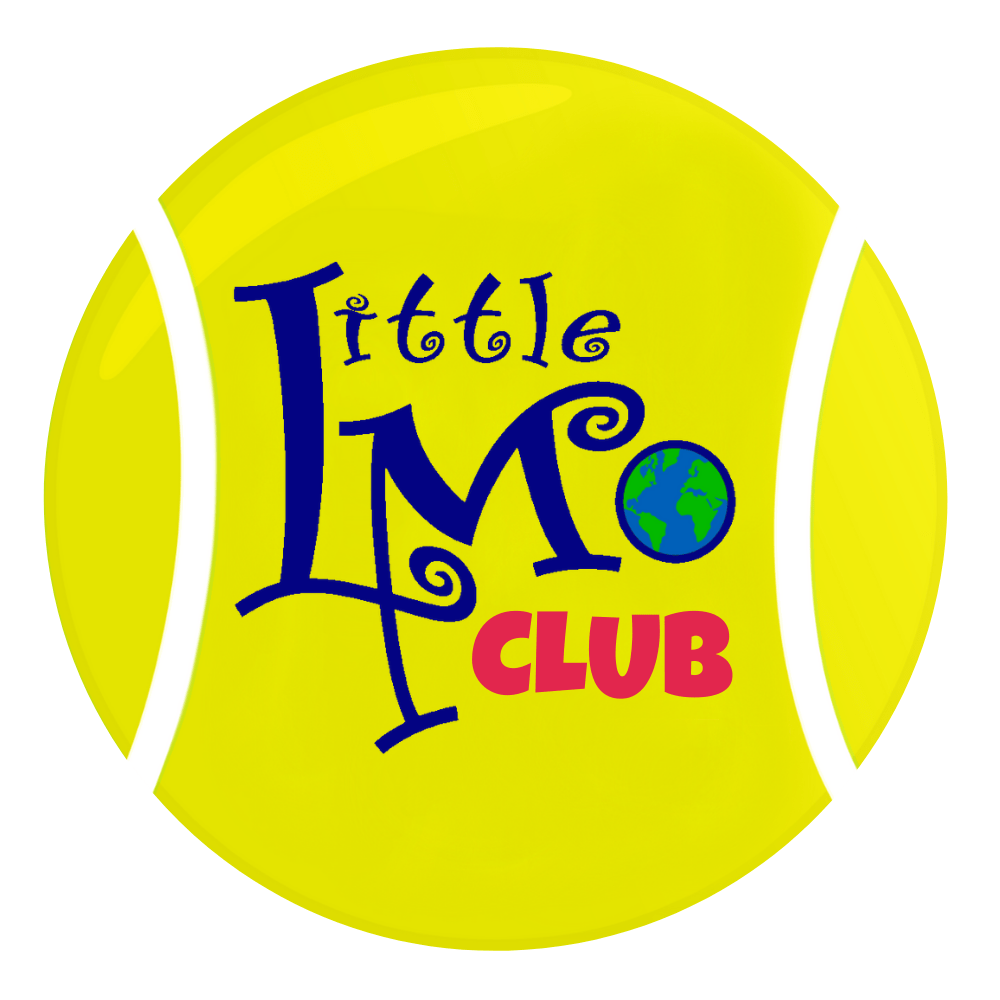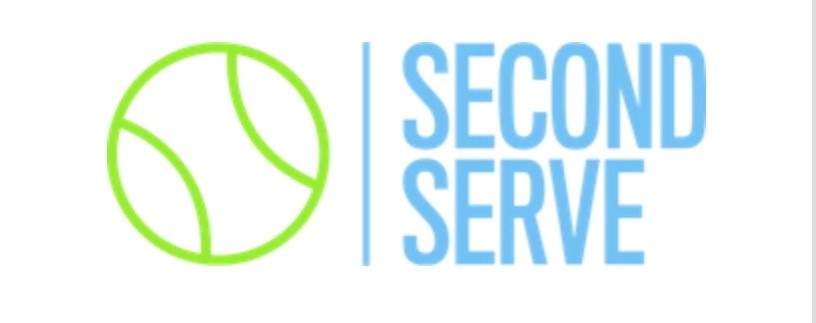Protecting Our Kids from Predatory Coaches
Up Next
Be Bully ProofIt sickens me to write this article.
Earlier this week, I received word that a junior coach in the Middle States section, someone I had followed on social media and respected greatly, was arrested for “unlawful contact with a minor, attempted statutory sexual assault, and criminal use of a communication facility” (per a report on ABC6 News). This coach was a brand ambassador for USTA’s NetGeneration program, presenting at conferences around the country. He was a PTR-certified coach. He presented at USPTA meetings nationwide. In short, the news of his arrest and subsequent admission of guilt comes as a total shock.
I am not naive. I know sexual predators are among us and often come across as good men and women, well-respected in their communities. And I know tennis – as all youth sports – has a tragic history of “bad seeds” in the coaching department. This is not the first time a highly-regarded coach has been caught doing unfathomable things to children. Sadly, it won’t be the last.
That said, I am going to use this latest incident as an opportunity to open the door to conversation around sexual predators and to offer up some expert advice on what we parents can do to protect our children.
Here is a startling statistic taken from Page 23 of Safe Play: “One research study involving elite female athletes revealed that 22% of them engaged in some form of sexual activity with a coach during their athletic careers. If this statistic translated to the number of girls in a starting line‐up for a soccer team, that’s approximately two girls in every 11‐member starting lineup who had sex with her coach.” And from the 2014 USATF SafeSports Presentation: “Before age 18, between 6% ‐13% of competitive athletes experience some form of sexual abuse or assault within their sport. That’s as many as 1 out of every 8 athletes, and the numbers may be even greater for elite athletes.” Please note that the second statistic did NOT single out female athletes but rather ALL competitive athletes because this happens to our sons, too.
How do we prevent our children from becoming a statistic? Of course, there are so many things we parents can – and must! – do in terms of due diligence when choosing a coach. The simplest is to Google the coach and see if there is anything suspicious out there. Doing a background check is a must as well. However, a background check only reveals past acts, so if a coach has never been caught, his/her background check will be clean. Nevertheless, the background check can be a helpful tool if you go through the proper channels. “Many just go through the internet doing checks. Big mistake. Information most of the time is old and inaccurate. As a former investigator and one who owns a background investigation company, I go through the law enforcement data base. Huge difference. Part of my check is running a VSOP: Violent Sex Offender Predator Check. And I recommend doing checks every 6 months,” shares a Florida-based coach. Another very smart coach shared that he has two simple rules: “1) I DO NOT accept social media requests from anyone under 18 – this includes students I teach; and 2) I do not have cell numbers for anyone under 18. EXCEPTION: one mom asked that her daughter start to plan her own schedule….I include the mom on every text to the daughter.”
It goes without saying – at least I hope it does – that parents should NEVER leave their daughters alone with a male coach regardless of whether or not he has been cleared via a background check. As I pointed out above, this can happen to our sons, too, and it’s not just male coaches breaking the law here. However, the statistics are heavily skewed toward female victims and male perpetrators. According to RAINN:
- One in 9 girls and 1 in 53 boys under the age of 18 experience sexual abuse or assault at the hands of an adult.
- 82% of all victims under 18 are female.
- Females ages 16-19 are 4 times more likely than the general population to be victims of rape, attempted rape, or sexual assault.
- In 88% of the sexual abuse claims that Child Protective Services substantiates or finds supporting evidence of, the perpetrator is male. In 9% of cases they are female, and 3% are unknown.
Do not let your daughter travel alone with a male coach. Do not let your daughter go alone to his house. Do not let your daughter be alone at the courts with him. One parent of three daughters – all of whom play(ed) professionally – went so far as to say, “Every single coach that has gone to jail and been found guilty passed a background check. The parents are leaving their daughters with these male coaches all afternoon, sometimes all day. They let them travel alone with them and go to the male coaches’ houses with them. What do these parents expect???” Even when my son was traveling to tournaments with a coach, we had a “safe” word that he could use with us if there was ever anything going on that made him uncomfortable in any way. We must arm our children with tools to use in case they ever find themselves in a situation where they are being taken advantage of by a person – male or female – who they perceive to have power over them.
Prevention Tools for Our Children to Use (Dr. Michelle Cleere):
- Stay out of closed spaces
- Never be alone with a coach
- Always tell someone else where you are
- Always have your phone
- If you find yourself in an uncomfortable situation, trust you instincts and get out
- Pay attention to too much attention, too much touching, even on usually appropriate places such as the arm, shoulder, and back
- If you notice any of this, say, “Please don’t do this. It makes me uncomfortable,” then tell your parents.
What are some of the warning signs that your child is being abused – sexually or otherwise – by a coach? According to Dr. Cleere (click here to listen to my podcast with her), kids send pretty clear signals when something isn’t quite right.
Signs That Your Child May Be Experiencing Abusive Behavior from a Coach:
- Watch for changes in the interaction between your child and the coach
- Your child doesn’t want to go to practice
- Your child becomes withdrawn
- Your child becomes unusually quiet
- Your child’s performance is dropping
- Bruises
If your child does come to you and says he or she is being sexually abused by a coach, your first reaction may be something like, “Why did you allow this to happen?” or “Why did you go with them?” or “Why did you let it happen more than once?” Dr. Charlotte Alabaster says that predators prey on children because they (the children) are trusting and innocent. She goes on to share, “These are extremely unhelpful questions that add guilt and confusion to the feelings the child is already experiencing. If you ask these questions, it adds to the shame. You would be surprised how often parents respond this way, and it is very, very unhelpful.”
So what is the proper way to respond if the unthinkable happens to your child? Dr. Alabaster offers these suggestions:
- Listen in a non-judgmental way. It is far more helpful to find out factual information: who, where, when, what happened.
- Find out if there is any physical injury that needs medical attention. Consider the risk of STDs and make an appointment with a trusted. empathetic medical professional.
- Arrange for counselling with a skilled therapist if the child wants to do this. Disclosure is a tough thing for kids so be very sensitive and respectful about what they want and what they need.
- Parents need to be practical and file a police report so that the predator is identified as a risk in the community and other children can be protected from harm.
- The most important thing you can say to reassure your child is “This is not your fault. What has happened here is something that should never happen between an adult (or older teen) and a child.” Something along those lines is affirming to the child and reinforces that they are not to blame for what occurred. They will already be asking themselves why did I go with them, why did I not fight back, why did I not call out for help? When abuse takes place it can be very violent and the child thinks they are going to die – in the worst cases, they do. Disclosure is extremely difficult for a child and even as an adult it is something extremely sensitive and difficult to talk about. Feelings of shame are lifelong. Too often there is no disclosure even in the presence of physical injury so if you as a parent are entrusted with this very delicate information handle it with care and tenderness and contact your family physician or pediatrician immediately.
- Let your child know without any shadow of a doubt that you love them, care for them, and will be there for them always, no matter what, and that you are very proud of them for sharing their painful story because you know it was hard for them to tell you.
When I heard about this latest horrible incident, I reached out to USTA, USPTA, and PTR for a statement. PTR has yet to reply, and USPTA declined to issue a statement. Here is USTA’s statement (I have removed the coach’s name):
The USTA is aware of the charges brought against XXX by the State of Pennsylvania. We stand ready to assist local law enforcement in any way possible.
The USTA takes these matters very seriously and is dedicated to ensuring a safe environment for all tennis players. Based on the information the USTA has received regarding Mr. X’s arrest, the USTA has suspended him from participating in all USTA tournaments, events, and programs. In addition, the USTA has made a formal report regarding Mr. X to the U.S. Center for SafeSport, and will follow all communications from the Center, as we move forward.
We will continue to monitor this situation closely.
Please share this post with as many people as you can because this could happen to any of our children. If you feel it’s appropriate, share it with your child as well. That a coach would ever victimize a child is unimaginable, yet it continues to happen. We must arm ourselves and our children with the ammunition to put a stop to these despicable acts. If you suspect ANY type of unacceptable activity between your child and coach, do not sweep it under the rug. Talk to your child. If you’re in any way uncomfortable with what your child is telling you or how he/she is behaving, remove your child from the coaching situation immediately. We can never be too careful when it comes to the safety and well-being of our babies.
More resources:
- Character Development and Larry Nassar by Dr. Michelle Cleere
- If You Suspect Your Child is Being Harmed by Rape, Abuse & Incest National Network (RAINN)
- Tennis Birthdays – Isabelle Demongeot by Steph Myles
- Sexual Safety in Youth Sports
- Teaching Children to Protect Themselves Against Sexual Abuse by Gorana Hitrec
- Broken Trust, Shattered Lives by Greg Bach
- Tennis Coach Jailed for Sex Abuse – BBC News
Editors Note: After receiving many comments, I have edited this article to include more statistics and have reworded certain passages throughout the piece. I want to reiterate that predatory coaches come in both male and female form and that victims can be male or female as well.













